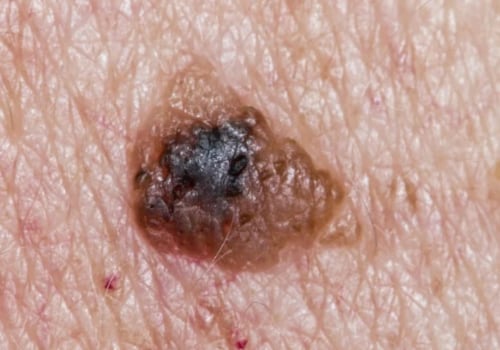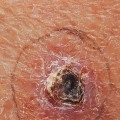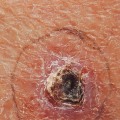Melanoma is a type of skin cancer that can be life-threatening if not treated in time. It is caused by the uncontrolled growth of pigment-producing cells in the skin, known as melanocytes. Melanoma can occur anywhere on the body, but it is most commonly found on the face, neck, arms, and legs. It is essential to recognize the signs of melanoma and seek medical attention if you suspect you may have it.
What are the treatments for melanoma?
The treatment for melanoma depends on the stage of the cancer and how far it has spread.The primary treatments for melanoma are surgery, radiation therapy, chemotherapy, and immunotherapy. Surgery is usually the first line of defense and involves removing the tumor and some surrounding healthy tissue. Radiation therapy uses high-energy beams to kill cancer cells and shrink tumors. Chemotherapy uses drugs to destroy cancer cells, while immunotherapy helps the body’s immune system fight cancer cells.
In some cases, a combination of treatments may be used. For example, surgery may be combined with chemotherapy or radiation therapy to increase the chances of success. In addition, targeted therapies may be used to target specific genes or proteins that are involved in the growth and spread of melanoma. It is important to talk to your doctor about all of your treatment options and decide which one is best for you.
Your doctor will also discuss any potential side effects of treatment and how to manage them.
Preventing Melanoma
The best way to prevent melanoma is to protect yourself from ultraviolet (UV) radiation from the sun or tanning beds. This includes avoiding direct sun exposure during peak hours (10am-4pm), wearing protective clothing such as long-sleeved shirts and wide-brimmed hats when outdoors, and using sunscreen with an SPF of 30 or higher. It is also important to check your skin regularly for any changes in moles or other marks on your skin. If you notice any changes in size, shape, color, or texture of a mole or other mark on your skin, it is important to see a doctor right away.Conclusion
Melanoma is a serious form of skin cancer that can be life-threatening if not treated in time.The main treatments for melanoma are surgery, radiation therapy, chemotherapy, and immunotherapy. It is essential to talk to your doctor about all of your treatment options and decide which one is best for you. In addition to treatment, it is important to take steps to reduce your risk of developing melanoma by avoiding direct sun exposure and using sunscreen with an SPF of 30 or higher.










